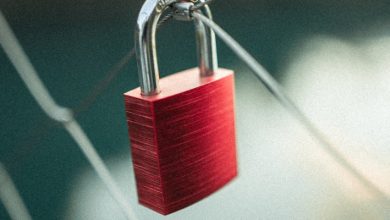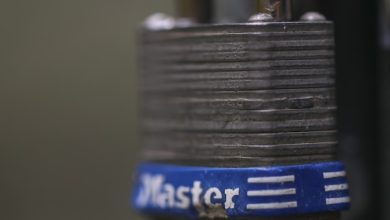How to Use Decentralized Exchanges (DEXs) Safely

- Understanding the basics of decentralized exchanges (DEXs)
- The importance of controlling your private keys when using DEXs
- Tips for securely storing your cryptocurrencies on DEXs
- Avoiding common pitfalls and scams on decentralized exchanges
- The role of smart contracts in ensuring safety on DEXs
- Comparing the security features of different decentralized exchanges
Understanding the basics of decentralized exchanges (DEXs)
Decentralized exchanges (DEXs) are platforms that allow users to trade cryptocurrencies directly with one another without the need for a central authority or intermediary. Understanding the basics of DEXs is crucial for anyone looking to safely participate in decentralized trading.
One key feature of DEXs is that they do not hold users’ funds. Instead, trades occur directly between users through smart contracts. This reduces the risk of hacking or theft, as users retain control of their assets throughout the trading process.
Another important aspect of DEXs is their focus on privacy and anonymity. Users do not need to create accounts or provide personal information to trade on these platforms. This can help protect users’ identities and prevent their trading activities from being tracked or monitored.
DEXs also offer a wider range of trading pairs compared to centralized exchanges, allowing users to access more niche or lesser-known cryptocurrencies. This can provide greater opportunities for diversification and potentially higher returns on investment.
Overall, understanding how decentralized exchanges work and the benefits they offer can help users make informed decisions when trading cryptocurrencies. By prioritizing security, privacy, and access to a diverse range of assets, users can safely navigate the world of decentralized trading with confidence.
The importance of controlling your private keys when using DEXs
One of the most important aspects to consider when using decentralized exchanges (DEXs) is the control of your private keys. Your private keys are essentially the keys to your digital assets, allowing you to access and make transactions on the blockchain. When using a DEX, it is crucial to have full control over your private keys to ensure the security and ownership of your funds.
By controlling your private keys, you are not relying on a third party to hold or manage your assets. This eliminates the risk of your funds being frozen, seized, or lost due to the actions of an exchange or any other centralized entity. With full control over your keys, you have the power to securely manage your assets and execute transactions directly on the blockchain.
Additionally, controlling your private keys also provides you with the ability to participate in various decentralized finance (DeFi) applications and protocols. Many DeFi platforms require users to connect their wallets directly to the application, which is only possible if you have control over your private keys. By retaining ownership of your keys, you can take advantage of the wide range of financial services offered by the DeFi ecosystem.
Tips for securely storing your cryptocurrencies on DEXs
When it comes to securely storing your cryptocurrencies on decentralized exchanges (DEXs), there are some important tips to keep in mind. These tips can help you protect your assets and minimize the risk of theft or hacking.
- Use a hardware wallet to store the majority of your funds. Hardware wallets are considered one of the most secure ways to store cryptocurrencies, as they are offline devices that are not susceptible to hacking.
- Avoid keeping large amounts of cryptocurrency on exchanges for extended periods. Only keep the amount you plan to trade in the short term on the exchange, and transfer the rest to your hardware wallet.
- Enable two-factor authentication (2FA) on your DEX account. 2FA adds an extra layer of security by requiring a second form of verification, such as a code sent to your mobile device, in addition to your password.
- Be cautious of phishing scams. Make sure you are accessing the correct DEX website and never click on suspicious links or provide your private keys or seed phrases to anyone.
- Regularly update your software and firmware. Keeping your wallet and devices up to date with the latest security patches can help protect against vulnerabilities.
By following these tips, you can help ensure that your cryptocurrencies are stored securely on DEXs and minimize the risk of unauthorized access to your funds.
Avoiding common pitfalls and scams on decentralized exchanges
Decentralized exchanges (DEXs) offer a secure and efficient way to trade cryptocurrencies without relying on a central authority. However, there are common pitfalls and scams that users should be aware of to protect themselves from potential losses.
One common scam on DEXs is fake token listings. Scammers may create tokens that mimic popular cryptocurrencies and list them on decentralized exchanges to deceive unsuspecting traders. To avoid falling victim to this scam, always double-check the token address and do thorough research before investing in a new token.
Another common pitfall on decentralized exchanges is the risk of impermanent loss. Impermanent loss occurs when the price of assets in a liquidity pool fluctuates, leading to a decrease in the value of your holdings compared to holding the assets outside the pool. To mitigate this risk, consider diversifying your liquidity pool assets and staying informed about market trends.
Moreover, phishing attacks are a prevalent threat on DEXs. Scammers may create fake websites or send fraudulent emails to trick users into revealing their private keys or seed phrases. To prevent falling for a phishing scam, always verify the authenticity of the website before entering any sensitive information, and never share your private keys or seed phrases with anyone.
Additionally, users should be cautious of rug pulls on decentralized exchanges. Rug pulls occur when liquidity providers suddenly withdraw their funds from a pool, causing the token price to plummet. To protect yourself from rug pulls, consider investing in well-established projects with transparent teams and active communities.
By staying vigilant and following best practices, users can safely navigate decentralized exchanges and avoid common pitfalls and scams. Remember to conduct thorough research, verify the authenticity of projects, and never share sensitive information with unknown parties to protect your investments.
The role of smart contracts in ensuring safety on DEXs
Smart contracts play a crucial role in enhancing safety on decentralized exchanges (DEXs). These self-executing contracts are programmed with specific rules and conditions, ensuring that transactions are secure and transparent. By automating the process of exchanging assets, smart contracts reduce the risk of human error and fraud.
One of the key benefits of smart contracts is their ability to eliminate the need for intermediaries, such as centralized exchanges, which can be vulnerable to hacks and security breaches. By allowing users to trade directly with each other, DEXs powered by smart contracts provide a more secure and efficient trading environment.
Furthermore, smart contracts can also help prevent front-running and other forms of market manipulation, as all transactions are recorded on the blockchain and cannot be altered. This level of transparency and immutability adds an extra layer of security to DEXs, giving users peace of mind when trading digital assets.
In conclusion, smart contracts are essential for ensuring safety on DEXs by automating transactions, eliminating intermediaries, and enhancing transparency. By leveraging this technology, users can trade with confidence and trust that their assets are protected from potential threats.
Comparing the security features of different decentralized exchanges
When comparing the security features of different decentralized exchanges (DEXs), it is important to consider factors such as encryption, multi-signature wallets, and smart contract auditing.
One key aspect to look for in a DEX is strong encryption protocols. This helps protect user data and transactions from potential hackers or malicious actors. Additionally, having multi-signature wallets adds an extra layer of security by requiring multiple private keys to authorize a transaction.
Another important security feature to consider is smart contract auditing. This involves having independent third parties review and validate the code used in the exchange’s smart contracts to ensure there are no vulnerabilities or loopholes that could be exploited.
It is also worth looking into whether the DEX has a bug bounty program in place. This incentivizes security researchers to report any vulnerabilities they find, helping the exchange address and fix issues before they can be exploited.
In conclusion, when using a DEX, it is crucial to prioritize security features to protect your assets and personal information. By comparing the security measures in place at different exchanges, you can make an informed decision on which platform is the safest option for your trading needs.



